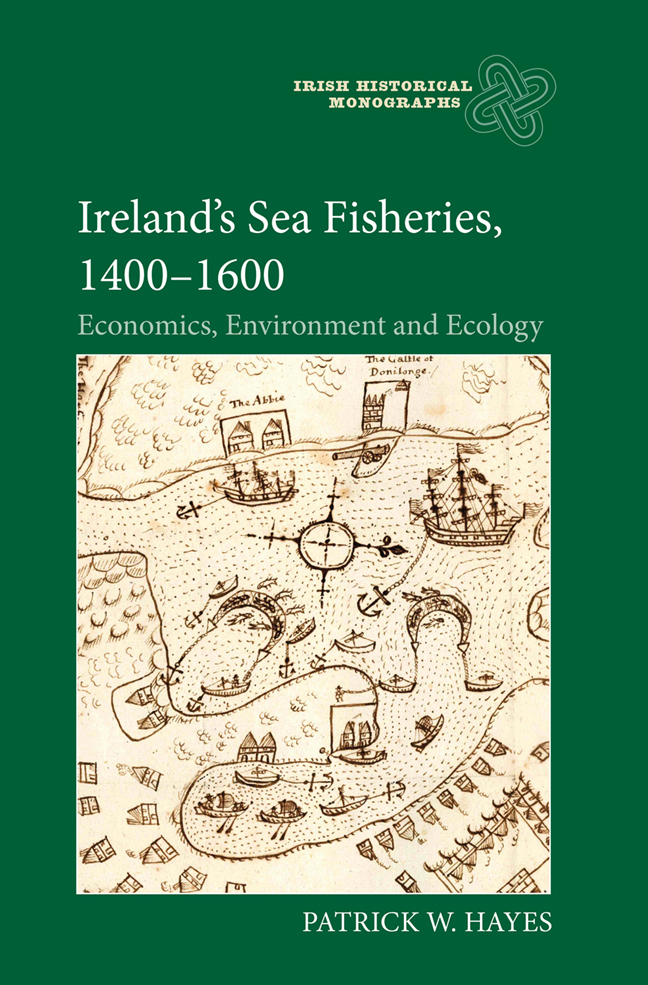Book contents
- Frontmatter
- Dedication
- Contents
- List of Illustrations
- Acknowledgements
- Abbreviations
- Glossary of Fish Species
- Introduction
- 1 The Development of Fisheries, 1400–1500
- 2 Diversity and Cooperation in Sixteenth-Century Fisheries
- 3 The Fish Trade
- 4 The Impact of War and Piracy
- 5 Fish Consumption and Provisioning
- 6 Oceanographic Variation and Environmental Change
- Conclusion
- Appendices
- Bibliography
- Index
- Miscellaneous Endmatter
1 - The Development of Fisheries, 1400–1500
Published online by Cambridge University Press: 22 February 2024
- Frontmatter
- Dedication
- Contents
- List of Illustrations
- Acknowledgements
- Abbreviations
- Glossary of Fish Species
- Introduction
- 1 The Development of Fisheries, 1400–1500
- 2 Diversity and Cooperation in Sixteenth-Century Fisheries
- 3 The Fish Trade
- 4 The Impact of War and Piracy
- 5 Fish Consumption and Provisioning
- 6 Oceanographic Variation and Environmental Change
- Conclusion
- Appendices
- Bibliography
- Index
- Miscellaneous Endmatter
Summary
All was fish that came to net.
Proverb, in H. C., A Book on the State of Ireland, 1599
The origins of intensive or commercial marine fishing in Ireland are poorly understood, but we can say that it did not start in the fifteenth century. Zooarchaeological evidence has allowed researchers to pinpoint the birth of concentrated marine fishing in England, and the wider European region, to the beginning of the tenth century CE. Around 1000, there was a shift away from freshwater fishing and a rapid increase in sea fishing, an event that has been coined as the ‘fish event horizon’ by researchers. Herring was the first species to be widely exploited in the first millennium; cod and hake fisheries followed in the thirteenth and fourteenth centuries.
As yet no detailed zooarchaeological study of fishbones or fish genetics has been conducted for Ireland, but Sheila Hamilton-Dyer has undertaken an overview of the available fishbones evidence from existing archaeological reports. Her analysis shows that the intensity of cod fishing increased throughout the medieval period in Ireland, matching what has been observed in other parts of Europe. However, the presence of larger fish might be overstated in the data, as, for the most part, these assemblages were hand-collected, which means that smaller bones from species like herring could have been overlooked owing to a lack of sieving. Overall, much more research is required before definitive conclusions can be drawn from Irish zooarchaeological evidence. Fortunately, new research projects promise to increase our range of knowledge in this area through the application of cutting-edge methods to the study of Irish archaeological material.
The records of the Irish Chancery are one of the most comprehensive printed documentary sources extant for medieval Ireland. The records run intermittently from 1244 to 1509. These records provide the first quantitative evidence of intensive, commercial marine fisheries in Ireland. However, they also have an inherent regional bias, relating mostly to the areas in which the Norman and then English state had the most significant control following the arrival of the Normans in Ireland in the twelfth century. To balance this, a selection of the most extensive Irish Annals have also been surveyed. Entries from the Annals after 1500 will be covered at greater length in later chapters, but the present discussion includes some consideration of what they can tell us about fishing before 1500.
- Type
- Chapter
- Information
- Ireland's Sea Fisheries, 1400-1600Economics, Environment and Ecology, pp. 16 - 46Publisher: Boydell & BrewerPrint publication year: 2023



